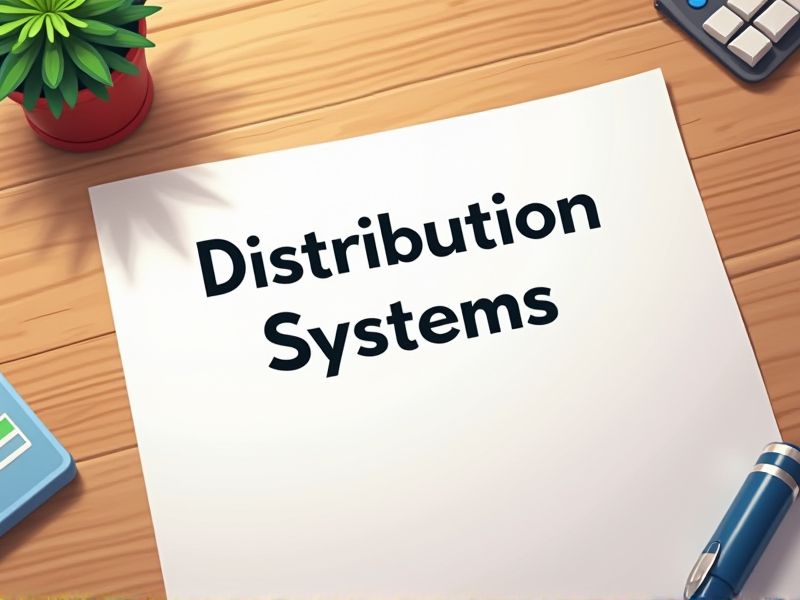
Distribution Systems Operators manage the complex network that delivers electricity from producers to consumers, demanding precision and expertise. Certification assures that operators possess the necessary technical skills and knowledge to maintain system reliability and safety. Regulatory compliance and industry standards mandate specific certifications to ensure operators meet essential quality and performance benchmarks. Important certifications for Distribution Systems Operators include those focused on technical proficiency and safety compliance.
NERC Critical Infrastructure Protection (CIP) Certification
NERC Critical Infrastructure Protection (CIP) Certification is needed for Distribution Systems Operators because it ensures that these operators adhere to standardized protocols to protect the electrical grid from cyber threats and physical attacks. With heightened risk of cyber incidents, certification equips operators with essential knowledge to identify vulnerabilities and implement mitigation measures effectively. Regulatory compliance with NERC CIP standards is mandatory for operators to avoid penalties and ensure reliability in electricity delivery. The certification builds a culture of security, fostering consumer trust and maintaining utility service continuity.
NERC System Operator Certification
The NERC System Operator Certification ensures that Distribution System Operators maintain reliability and security across the power grid. It provides them with knowledge and skills essential to manage system emergencies and operational complexities. Without this certification, operators might lack the competency to prevent blackouts and other disruptive events. The certification also aligns operators with standardized industry practices, improving coordination in interlinked power systems.
Distribution Systems Operator Training Certification
Distribution Systems Operator Training Certification ensures operators have the necessary skills and knowledge to efficiently manage and control power distribution systems. Proper training helps in minimizing downtime and maintaining power quality, which directly affects consumer satisfaction and grid stability. Certification provides standardized knowledge, reducing operational errors and enhancing system reliability. Regulatory compliance often mandates certification, aligning operators with industry standards and safety protocols.
SCADA Operations Certification
SCADA Operations Certification equips Distribution Systems Operators (DSOs) with essential skills to effectively monitor and control the electrical grid, ensuring reliability and efficiency. With certification, DSOs gain a comprehensive understanding of critical infrastructure systems, reducing the likelihood of operational failures and downtime. The certification process provides standardized training, which is crucial for maintaining consistent safety and compliance across various utility sectors. Accreditation fosters a culture of continual learning, enhancing the ability of operators to adapt to emerging technologies and regulations.
Distribution Management System (DMS) Certification
DMS certification ensures that Distribution Systems Operators maintain high standards of operational efficiency and reliability. The certification trains operators to effectively manage and optimize power distribution, reducing the risk of outages and improving service quality. By understanding advanced DMS technologies, certified operators can integrate renewable energy sources more seamlessly into the grid. The certification also provides operators with the knowledge necessary to comply with regulatory requirements and industry best practices, minimizing legal and operational risks.
Smart Grid Technology Certification
Smart Grid Technology Certification ensures Distribution Systems Operators possess the necessary skills to manage advanced grid systems effectively. It equips operators with knowledge on integrating renewable energy sources, which is vital for reducing reliance on fossil fuels. Certification helps maintain grid stability by training operators in real-time monitoring and automated control systems. It also plays a crucial role in enhancing cybersecurity measures to protect the grid from potential threats.
OSHA 10/30-Hour Safety Certification
OSHA 10/30-Hour Safety Certification enhances a Distribution Systems Operator's understanding of critical safety protocols. This training reduces workplace accidents and incidents by providing essential knowledge on hazard identification and mitigation. Employers often require this certification to ensure compliance with federal safety regulations and minimize legal liabilities. Certification also empowers operators to foster a safer working environment, leading to improved productivity and morale.
Electrical Safety Compliance Certification (NFPA 70E)
Electrical Safety Compliance Certification, such as NFPA 70E, is crucial for Distribution Systems Operators to ensure they adhere to standardized safety practices, minimizing the risk of electrical incidents. The certification provides essential guidelines aimed at preventing electrical injuries, thereby safeguarding both operators and infrastructure. Compliance with NFPA 70E helps organizations avoid potential legal liabilities and financial penalties linked to workplace accidents. Consistent application of the certification enhances operational efficiency by fostering a culture of safety and awareness among employees.
Emergency Response Technician Certification
Emergency Response Technician Certification equips Distribution Systems Operators with skills to manage critical incidents and ensure public safety. When an emergency arises, certified operators can quickly diagnose and address potential hazards in utility networks. Trained operators reduce downtime and prevent service disruptions by handling issues efficiently. Certification fosters a culture of safety and compliance with regulatory standards within the industry.
Certified Electrician License
A certified electrician license ensures a distribution systems operator has the necessary technical knowledge to safely maintain and operate electrical systems. Without the license, there's an increased risk of mishandling equipment, leading to potential system failures and safety hazards. Regulatory bodies mandate such certifications to uphold industry standards and public safety. Licensed operators also reduce liability for employers by proving compliance with legal and safety regulations.
Summary
When you ensure a Distribution Systems Operator obtains certification, you enhance operational reliability and safety in power distribution. Certified operators often contribute to reduced system downtime and improved grid efficiency due to their updated skills and knowledge. In turn, you may see a decrease in system losses and operational costs, improving overall service quality. Consequently, certification can lead to increased customer satisfaction as service disruptions become less frequent and response times improve.
